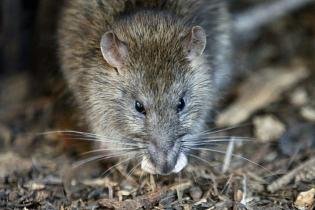Ontario Investigating three Cases of Seoul Virus, which is Spread by Rats
Three people in Ontario have been infected with Seoul virus, an illness typically transmitted by rats, Ontario’s Chief Medical Officer of Health announced Wednesday.
The three cases are linked to rat exposure in Ontario, according to chief medical officer Dr. David Williams. All three people had prolonged contact with the rodents.
“No serious health outcomes have been reported for the cases,†Williams stated. “The health risk to Ontarians is considered low and Seoul virus is not spread from person to person. However, people who come in contact with rats and materials contaminated with urine, droppings or saliva should educate themselves about potential diseases they could be in contact with, including Seoul virus, and take the appropriate precautions.â€
The Ministry of Health and Long-Term Care is investigating the source of the illnesses, including any possible connections to a multi-state outbreak of 16 human cases in the U.S.
The U.S. Centers for Disease Control and Prevention said last week it is investigating those cases, which stretch across 15 states.
Seoul virus can be transmitted from rats to people through bites or exposure to urine, feces, saliva or contaminated bedding, Williams said.
The ministry is urging those who have had prolonged exposure to rats to contact their health care provider. It’s also encouraging people concerned their pet rat is infected to consult their veterinarian to see if laboratory testing is needed.
In humans, symptoms of the virus in some cases may include fever, severe headache, back and abdominal pain, chills, blurred vision, redness of the eyes or rash. However, a person infected with the virus might not develop symptoms at all.
The majority of people infected recover with no long-term health effects, but in rare cases the virus can lead to a serious condition called hemorrhagic fever with renal syndrome, which can cause low blood pressure, shock and acute kidney failure.
Rats infected with Seoul virus typically don’t show any symptoms, Williams said.
There is no way to treat infected rats and the animals can spread the virus for the rest of their lives, he said.
The ministry is continuing to test rats, and has found some infected rats at Ontario rat breeding facilities.
Rat
breeders in Ontario who have sent or received rats from facilities
linked to the province’s investigation may be offered testing by the
Public Health Agency of Canada.
Comments
There are 0 comments on this post





